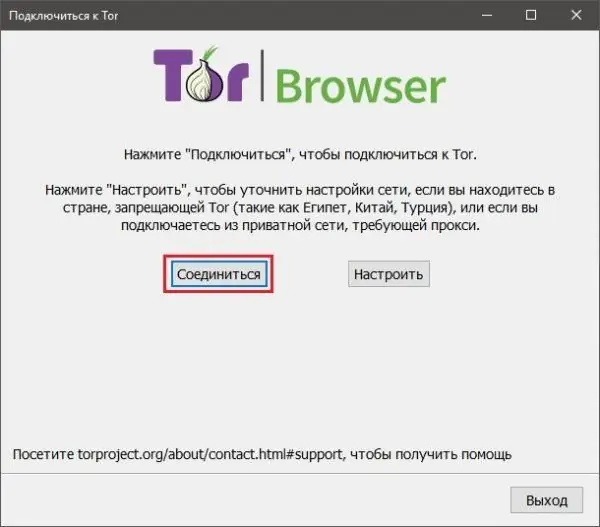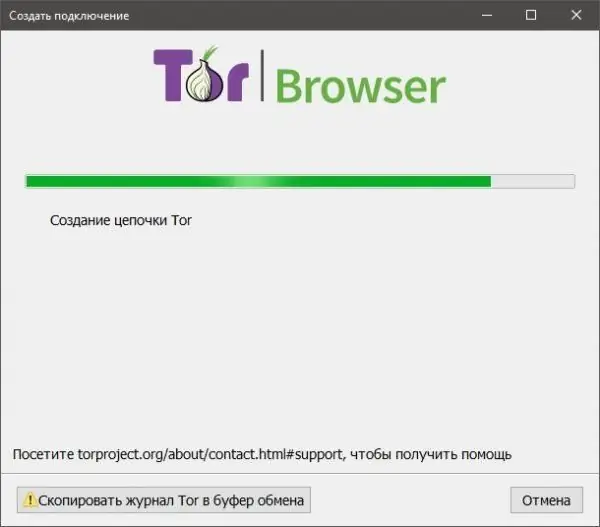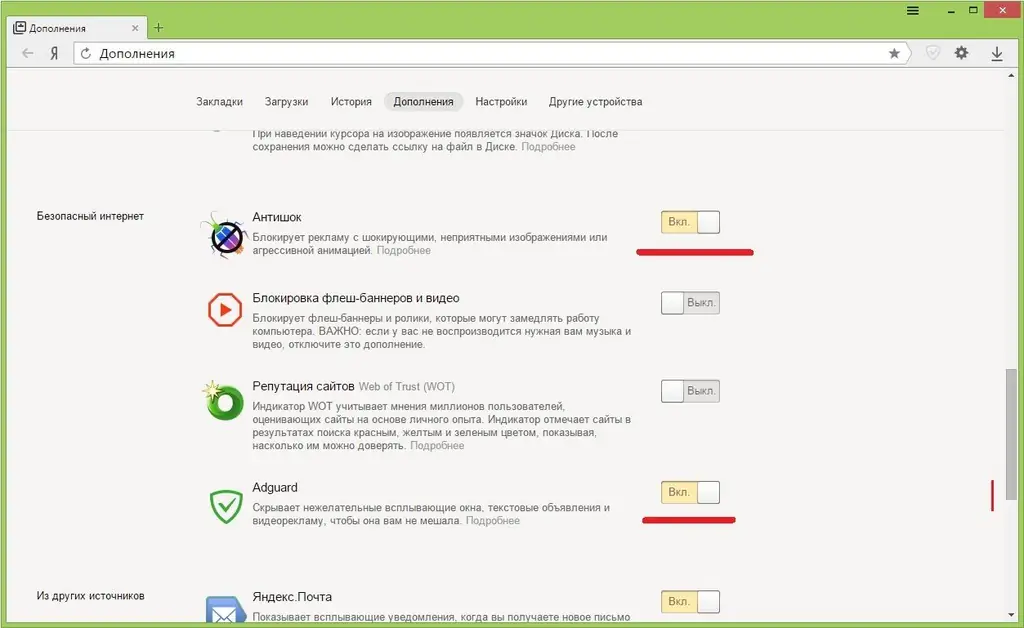
Table of contents:
- Author Bailey Albertson albertson@usefultipsdiy.com.
- Public 2023-12-17 12:53.
- Last modified 2025-01-23 12:41.
Installing and configuring Tor Browser

Tor Browser provides anonymity on the Internet. In addition, it allows you to bypass site blocking. Due to these qualities, it is in great demand among users.
Content
- 1 What is Tor Browser
-
2 Installing Tor Browser
- 2.1 Table: System Requirements for Windows
- 2.2 How to find out the version and language of the installed file
- 2.3 Installation instructions
- 2.4 Video: Installing and Configuring the Tor Browser for the First Time
-
3 Browser settings
- 3.1 Browser settings
- 3.2 Creating a new personality
- 3.3 NoScript extension
- 3.4 Adjusting security settings
- 3.5 Settings for additional security
- 3.6 How to bypass a firewall
-
4 Troubleshooting
-
4.1 Tor Browser won't connect to the internet
- 4.1.1 Solution # 1: checking the date and time
- 4.1.2 Solution # 2: Add to Windows Firewall
-
- 5 Browser removal
What is Tor Browser
The Tor system was developed in the early 2000s in the US Navy laboratory. The source code of the technology was made publicly available so that anyone could check the development for errors and vulnerabilities.
Tor software is based on onion routing technology: Tor users create nodes, and the system forms chains from them through which encrypted information is transmitted.
Tor Browser is the official browser from The Tor Project, Inc. There are versions for Windows, Mac, Linux, Android. Distributed through the official website.
Benefits:
- easy installation. Despite the complex operating principle, the browser is installed as easy as conventional software;
- simple use. The browser is used in the same way as Google Chrome, Mozilla or Opera without additional manipulation;
- anonymity. The user does not leave any traces when visiting sites;
- bypassing locks. The browser allows you to visit prohibited sites.
Disadvantages:
- long loading of web pages. Due to the onion routing system, each request goes through a chain of nodes, which increases the response time;
- lack of Flash Player. The browser does not allow third-party applications to collect location information and other personal data that Flash Player requests.
Installing Tor Browser
The browser is distributed free of charge, so you can try it now. First, make sure your PC meets the minimum system requirements.
Table: Windows System Requirements
| Windows OS version | XP, Vista, 7, 8, 10 |
| CPU frequency | 1.5 GHz |
| Video memory | 64 MB |
| Hard disk space | 120 Mb |
| RAM | 256 MB |
The required performance is rather low. The browser will work quickly for most users.
How to find out the version and language of the file being installed
Before downloading the installation file, you can view its version and change the browser language. Here's how to do it:
- Go to the download page.
-
The version of the file will be written on the line "Version". For example, Version 7.5.3.

Download window with file version The version of the file will be written in the line "Version"
-
The language of the file can be viewed and changed under the big purple Download button. English is selected by default. Click on "English" to open the list, and select "Russian" if you want to use the browser in Russian.

Browser loading window with language selection To change the language, click on the current language (highlighted in red) and select "Russian" in the list (highlighted in green)
Installation instructions
Follow the steps of the instruction:
-
Go to the official website of the browser. Registration is not required. Click on the "Download" button at the top right of the screen.

Torproject.org home page To go to the download page, click on the "Download" button
-
Change the language of the file to Russian, as shown above. Click on the big purple Download button.

File download page Don't forget to specify the language of the file before uploading
-
Wait for the download to finish and run the installer by opening the file.

Loading line window The location of the download bar may differ in different browsers
-
Select Russian for the installer.

Language selection window If Russian is not selected by default, click on it (highlighted in green), select "Russian" and click "OK" (highlighted in red)
-
In the line for selecting the installation folder, you can select the desired directory by clicking on "Browse …", or leave it as default. After that click "Install".

Directory selection window Select the directory by clicking on "Browse …" to the right of the red rectangle, or leave it as default; then click on the "Install" button
-
To create shortcuts on the desktop and in the Start menu, check the box next to Add Start Menu & Desktop shortcuts. To launch Tor Browser right now, check the box next to “Launch Tor Browser”. Click Finish.

Installation completion window To create shortcuts in the Start menu and on the desktop, select the item highlighted in yellow; to launch Tor Browser, select the item highlighted in green; press the "Finish" button highlighted in red
- The browser is installed!
Video: installing and first configuring Tor Browser
Browser setting
On first launch, the browser will open a window with a Tor connection. If you are not located in a Tor-banning country, or are not connecting from a private network that requires a proxy, click Connect.

To connect, click the "Connect" button
The browser will connect to the Tor network and a new tab will open.

Wait for the connection to be created
Here's how to set up your network:
-
Enter the settings by clicking the "Configure" button.

Selecting settings in the connection window To go to the settings, click on the "Configure" button
-
If Tor is banned in your country of residence, select "Tor is banned in my country."

Tor Network Settings Window If Tor is illegal in your country, please select this option
-
By default, Select Onboard Bridge is selected. Bridges are unregistered relays that make it difficult to block connections to the Tor network. Different types of bridges use different techniques to avoid blocking by censors. Bypass devices make traffic look like random noise and simulate connecting to this service instead of Tor. Leave this item enabled if you don't know other bridges. Click Connect to finish.

Tor Network Settings Window: Default Bridge Leave the "Select built-in bridge" option if you do not know other bridges, then click the "Connect" button
-
If you know the bridge to which you can connect, select Specify the Bridge I Know and enter the bridge information in the box. Then click "Connect".

Network Settings Window: Entering Bridge Information Select the item "Specify the bridge that I know" (highlighted in red) and enter the address in the field (highlighted in green), then click on the button "Connect" (highlighted in purple)
-
If you are using a proxy, select I am using a proxy to connect to the Internet.

Network settings window: proxy selection If you are connecting through a proxy, select this item
-
Enter your proxy information. Click Connect to finish.

Browser window with network settings: proxy settings In the brown rectangle specify the type of proxy, in the red - its address, in the green - the port, in the purple and blue - the username and password; then click on the "Connect" button highlighted in yellow
Browser settings
Here's how to go to settings:
-
Open the browser menu by clicking on the three-bar button in the upper right corner of the page.

New tab Menu open button is highlighted in red
-
Select the "Options" button with the gear icon.

New tab with open menu Select the "Options" tab indicated by the red arrow
Let's go through the internal settings of the program:
-
in the "General" category, you can customize the start page, specify the path for saving files and customize the order of opening tabs;

Settings section "Basic" The launch settings are highlighted in red, the file download settings are in green, the tab parameters are in blue.
-
in the "Search" section, you can customize the default search engine and add other search engines;

Search settings section By clicking on the item in the red rectangle, you can set the default search engine
-
in the Content category you can find adjustments for notifications and pop-ups. Here you can set the font and language for displaying web pages;

Content settings section Notification settings are highlighted in red, pop-up windows are in green, fonts and colors are blue, languages are yellow.
-
in the "Applications" section, you can configure the built-in browser add-ons. For example, change the program for reading pdf files;

Settings section "Applications" By clicking on the "Preview in Tor Browser" button (highlighted in red), you can select a program for reading pdf files (highlighted in blue)
-
in the "Privacy" category, you can turn off browsing history and tracking protection;

Settings section "Privacy" Tracking protection settings are highlighted in red, history and cookies are stored in green, and auto-entry in the address bar is blue.
-
the "Protection" section contains browser security settings. You can enable blocking of dangerous content of web pages, configure the storage of logins;

Settings section "Protection" Red and green highlighted settings for warning about installing add-ons and blocking dangerous content, purple - settings for storing logins
-
in the "Synchronization" category, you can sign in to your Firefox account to sync bookmarks, tabs and passwords;

"Synchronization" settings section To sign in to your Firefox account, click "Sign in" (highlighted in green) or create a new one by clicking on "Create new account" (highlighted in red)
-
There are five sections in the Advanced section and are navigated in the row below the heading. The General section contains settings for scrolling the page and advanced browser options;

Section of additional settings "General" You can enable advanced browser capabilities by checking the boxes next to the desired items in the red rectangle, and adjust the browsing options for sites in the orange rectangle
-
in the "Network" category in the advanced settings, you can clear the cache of the application and web content, configure the Tor connection to the Internet;

Section of additional settings "Network" You can configure the Tor Browser connection to the Internet by clicking on the "Configure …" button (highlighted in purple), configure the page cache (highlighted in red) and the application cache (highlighted in blue)
-
the "Updates" section in the advanced settings contains the parameters for updating the browser and search plugins;

Section of additional settings "Updates" You can manage program updates (highlighted in red) and enable plugins auto-update (highlighted in green)
-
the "Certificates" category in the advanced settings contains settings for requesting certificates from servers. A certificate is a file that uniquely identifies servers. The purpose of the certificate is to provide a secure connection between the server and the user's browser.

Section of additional settings "Certificates" Settings for issuing certificates are highlighted in red; to view certificates, click on the "View certificates" button (highlighted in purple)
Creating a new personality
Tor supports the ability to quickly change a set of nodes. This will clear all cookies and change the IP address. Here's how to change your Tor identity:
-
Press Ctrl + Shift + U or the onion icon at the top, to the left of the address bar.

Tor Browser Window: Onion Icon Click on the onion icon (highlighted in red)
-
In the list that opens, select "New Identity".

Opening the Tor menu under the onion icon Click on "New Identity"
-
Confirm by clicking on "Confirm" in the new window.

Change of identity confirmation window Click on the "Confirm" button indicated by the red arrow; if you do not want to receive more alerts, select the "Do not ask me again" item
- Done! You now have a new personality.
Extension NoScript
NoScript is an extension that blocks JavaScript, Java, Flash and other potentially dangerous components of HTML pages. It is present by default in the Tor Browser. Here's how to set it up:
-
Click on the extension icon in the upper left corner of the window.

Tor Start Page: NoScript Button The arrow points to the NoScript extension icon
-
Select "Settings".

Window with open NoScript menu Select "Settings …" in the drop-down menu
-
Go to the "White List" tab.

NoScript Settings Window Navigation is at the top, the "White List" button is highlighted in red
-
Uncheck the "Global Script Resolution" box.

White List Tab Uncheck the box "Global Script Resolution"
-
Go to the "Built-in Objects" tab.

NoScript settings window Go to the "Built-in Objects" tab highlighted in red
-
All items should be checked, except for "Do not show placeholder …" and "Collapse locked objects". Click OK.

Built-in Objects Window Check the boxes in accordance with the ones highlighted in the screenshot and click on "OK"
Adjusting security settings
You can customize the most appropriate security level yourself. For this:
- Repeat the first step from the previous instructions, opening the menu.
-
Select "Security Settings".

Tor Browser window with open menu Click on the button with the onion and select "Security Settings" (highlighted in red)
-
Here you can adjust the security level. Use the slider to select the "Most Safe" level.

Tor Browser Security Settings Window Raise the slider to "Most Safe"
-
Click OK.

Tor Browser Security Settings window with selected settings Click OK to save the new security level
- Done! Security settings changed.
Additional security settings
There are additional security measures that you can apply at will:
- Go to the settings as in the instructions above.
-
The navigation is on the left. Go to the "Privacy" category.

Options Window: Privacy Category Go to the "Privacy" category in the navigation pane on the left
-
Check the boxes next to "Use tracking protection in private windows" and "Always work in private browsing mode".

Category "Privacy" Check the checkboxes to protect yourself from tracking and work in private mode
-
Go to the "Protection" category.

Settings window: category "Protection" Go to the "Protection" category in the navigation pane on the left
-
Check the boxes next to Warn when websites try to install add-ons and Block dangerous and deceptive content.

Category "Protection" Check the boxes below to protect yourself from dangerous content
How to bypass a firewall
Here's what to do to bypass the firewall:
- Click on the onion icon in the upper right corner as in the instructions above.
-
Select "Tor Network Settings".

Welcome to the Tor Browser window: select settings from the menu Select "Tor Network Settings" from the drop-down menu
-
Here are the same settings as in the instructions above, except for the item "My firewall allows me to connect only to certain ports." Select it if you want to bypass the firewall.

Tor network settings Select "My firewall allows me to connect only to certain ports"
-
In the field that appears, enter the allowed ports separated by commas. They can be found in the firewall settings. Then click "OK".

Network settings Enter allowed ports separated by commas in the field and click "OK"
Troubleshooting
Problems can sometimes occur while using the browser. They are rare, individual and related not so much to the browser as to the provider. The main difficulty is the lack of an Internet connection: for example, pages do not load. Adding to exceptions or checking the date and time can help here.
Tor Browser won't connect to internet
If the page does not load for more than a minute, then most likely the browser cannot connect to the network.

If the content of the page does not appear for a long time, and the inscription "Connecting …" does not change to the title of the site, then most likely the browser cannot connect to the Internet
Solution # 1: checking the date and time
Check if the correct date and time is set on the computer. If they are wrong:
-
Right click on the clock; they are at the bottom right of the taskbar.

Taskbar: clock Right click on the date bar
-
In the menu that appears, select the "Date and Time Settings" item.

Taskbar context menu Select "Date and Time Setting"
-
In the window that opens, check if the "Set time automatically" mode is enabled. If not, turn it on.

Date and Time Settings Window Flip the switch to the "On" position. for automatic time setting
-
To manually adjust the time, click Change.

Date and time setting window To manually change the date and time, click on the "Change" button
-
Enter the correct date and time in the window that appears.

Change Date and Time Window Select the current date (highlighted in red) and time (highlighted in green)
-
Click "Change".

Date and time change window To continue, click on the "Change" button
- Done!
Solution # 2: add to Windows Firewall
Sometimes, you can add Tor Browser to the allowed firewall programs to solve the problem with the network connection. Here's how to do it:
-
Go to the "Start" menu and type in the search for "firewall".

Search in the Start Menu Type "firewall" in the search bar
-
In the search results, select "Allow application communication through a firewall."

searching results In the search results, select "Allow communication with an application through a firewall"
-
In the window that appears, click "Change settings".

Firewall Window: Changing Settings The "Change parameters" button is located above the list of allowed programs
-
Scroll down the page and click on "Allow another application …".

Allowed Programs Window The button "Allow another application …" is located at the bottom of the window
-
In the Add Application window, click Browse ….

Add Application Window Click on the "Browse …" button to find the Tor folder
-
Go to the folder with the Tor browser and select the "firefox.exe" file. Click "Open".

Overview window Find the file "firefox.exe" in the Tor Browser directory; folder location may differ on different computers
-
You will return to the previous window. Click Add.

Add application window Click on the "Add" button to allow Tor Browser
- In the Allowed Programs window, click OK.
Browser removal
Removing Tor Browser is easy. Here's what to do:
-
Find the folder with the browser on your computer. By default, the program is installed on the desktop.

Desktop view The "Tor Browser" folder is on the desktop by default
-
Right click on the folder and select "Delete."

Folder context menu Right-click on the found folder, select "Delete"
-
Right click on the shopping cart. Select "Empty Trash".

Cart context menu Right click on the basket, then select "Empty Trash"
-
Confirm the deletion by clicking on "Yes".

Delete confirmation Confirm the deletion by clicking on "Yes"
Tor Browser is a good choice for those who need anonymity and the ability to bypass blocking. Despite the sophisticated technologies that the browser uses, the installation process is easy and does not require any special skills. It can be easily removed if desired, leaving no residual files behind.
Recommended:
How To Update The Google Chrome Browser To The Latest Version, Including Through The Official Google Chrome Website - Instructions And Photos

Why you need to update Google Chrome and how to do it for free. What to do if the update failed
How To Update The Mozilla Firefox Browser - Why And When Is It Done, Check The Existing Version And Install The Latest

How to update Mozilla Firefox for free and when to do it. What to do if an update error occurs
What Is Zen Feed In Yandex Browser, How To Install It On A Computer, Configure And Uninstall It - Step By Step Instructions, Recommendations

What is the Yandex.Zen service: pros and cons. How to install it: different browsers. How to disable the service and what to do if it does not work
How To Completely Remove Tor Browser From Your Computer - Step By Step Instructions With Screenshots To Uninstall Tor Browser

What is the peculiarity of installing and uninstalling Tor Browser. How to remove a browser from computer memory with different OS
How To Install An Extension In Yandex Browser - What Are There, How To Download, Configure, Uninstall And What To Do If They Don't Work

Why install add-ons in Yandex Browser. How to download them from the official store or from the developer's site. What to do if not installed
